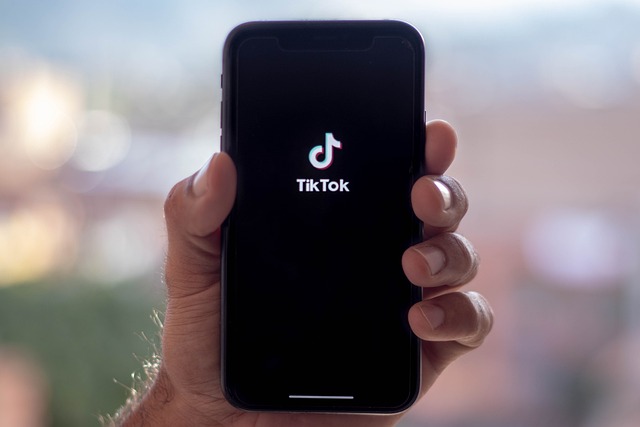 At last, government officials are doing something about the harm media is causing children. For years, I’ve written about violence in the media.
At last, government officials are doing something about the harm media is causing children. For years, I’ve written about violence in the media.
Research shows children who are persistently exposed to violent images learn aggressive behaviors, become desensitized to violence, and develop an exaggerated fear of becoming victims.
Now, social media is taking harm to children to an entirely new level. The federal government hasn’t done much about it, leaving parents and schools struggling with curbing kids’ screen time.
The good news is that TikTok is being sued by 14 states for putting profits before the well-being of millions of its most vulnerable users by creating a platform that’s addictive to youth.
In 14 separately filed lawsuits, the attorneys general accuse TikTok of violating the states' laws by targeting youth with features that encourage compulsive and excessive use to get them hooked on the platform. They contend the social media giant deployed misleading public statements about TikTok’s safety and content moderation practices despite internal research showing the risks to young users.
Research shows that excessive social media use by children and adolescents correlates with increased poor mental health outcomes, Washington State Attorney General Bob Ferguson said in a statement. That’s especially true for young girls.
TikTok intentionally created an addictive platform
Ferguson said that TikTok’s protections for young users are inadequate, despite its public claims of providing a safe, well-moderated experience for them.
“TikTok is deceiving young people and their parents when it claims to look out for the safety of young users,” he said. “Platforms like TikTok must be reformed and we know they are unwilling to do so on their own.”
The TikTok lawsuits come a year after a group of attorneys general filed a lawsuit against Meta, the parent company of Instagram and Facebook. The federal lawsuit accuses Meta of intentionally targeting youth with harmful features designed to get them hooked for life all while publicly downplaying the risks to maximize profits.
Like Meta, TikTok’s business model relies on maximizing user engagement. To keep young users coming back to the platform, TikTok designs its algorithms to figure out what types of videos they like and push more of those types of videos to them. TikTok’s “infinite scroll” and autoplay features increase the likelihood that users will stay on the app for an excessive amount of time, which is harmful to youth.
TikTok allowed under-13 users to bypass age gate
Starting in 2019, TikTok split its platform into two levels, a “Kids Mode” and a “full” experience. “Kids Mode” restricts content young users can access, and bars them from uploading content. They also have no access to direct messages and can’t comment on other posts, in addition to other restrictions.
TikTok uses “age gating” – or screening a user based on their birth date – to prevent underage users from accessing the platform’s full experience.
However, TikTok knows that many children bypass the age gate, if it’s used at all. TikTok’s age gate depends on children reporting their age. While the age gate may sometimes effectively filter some users under age 13 into “Kids Mode,” TikTok knows that under-13 users are incentivized to and routinely supply a false date of birth to access the full TikTok experience.
Sixty-three percent of all Americans age 13 to 17 use TikTok, and most teenagers in the U.S. report using TikTok daily, according to the Pew Research Center, with 17 percent of teens saying that they’re on TikTok “almost constantly.”
In 2020, more than one-third of TikTok’s 49 million daily users in the United States were 14 or younger, according to an article in The New York Times.
Investigation background
The lawsuits are the result of an investigation by state attorneys general that began in 2021.
Among the other attorneys general filing lawsuits this week are: California, New York, Illinois, Kentucky, Louisiana, Massachusetts, Mississippi, and North Carolina. Eight other states filed lawsuits earlier in the investigation: Arkansas, Iowa, Indiana, Kansas, Nevada, New Hampshire, Nebraska, and Utah.
The attorneys general are seeking to stop TikTok’s unlawful practices and to force TikTok to carry out reforms such as strengthening its screen time limiting features for youth, eliminating or placing limits on endless scrolling, and improving its “age gating,” or age verification, practices.
Social media impacts on youth mental health
Health officials, including the U.S. Surgeon General, agree that excessive social media use by children and adolescents correlates with physical and psychological harms such as higher rates of depression, anxiety, and attention deficit disorders. It can also lead to eating disorders, suicidal thoughts and body dysmorphia.
Social media use can disrupt activities that are essential for health, such as sleep and physical activity, depending on the amount of time children spend online.
Recent research shows that adolescents who spend more than three hours per day on social media face double the risk of experiencing poor mental health outcomes, such as symptoms of depression and anxiety, according to the Surgeon General.
Social media may perpetuate body dissatisfaction, disordered eating behaviors, social comparison, and low self-esteem, especially among adolescent girls. One-third or more of girls aged 11-15 say they feel “addicted” to certain social media platforms and more than half of teenagers report that it would be hard to give up social media.
Final thoughts
Thanks again to attorneys general for stepping up to protect citizens when Congress lags in its actions.



